

Overview:
Canary Marketing partnered with Minute.tech to develop a suite of custom solutions tailored to their niche pop-up web shop needs. These innovative tools allowed Canary to seamlessly distribute free gifts to guest-listed users, overcoming the limitations of third-party platforms while ensuring scalability, security, and customization.
View site
The Challenge
Canary Marketing faced a unique problem during the pandemic: how to adapt their swag distribution model to accommodate remote employees and guest lists without traditional e-commerce tools. Existing platforms like Shopify couldn’t support their requirements, such as managing bulk gift orders without payment gateways, ensuring PII compliance, and preventing invalid orders from unauthorized users.
Additionally, Canary needed a flexible and scalable solution to handle high-volume events and allow customization for individual client needs, all while maintaining robust security and usability. These challenges extended to the creation of branded one-page sites for their high-profile clients, which required rapid deployment and precise execution.
To address these challenges, we developed three purpose-built applications—canarymarketing-shop, ship-form-template, and canary-hub—each designed to evolve and expand Canary's capabilities while meeting their unique operational and client-specific needs.













canarymarketing-shop
The first iteration of the pop-up shop system, canarymarketing-shop, was developed to address the immediate challenges posed by the pandemic. With companies shifting to remote work, collecting gift preferences and shipping details for employees was a logistical hurdle. Canary’s existing tools, like Shopify and BrightSites, couldn’t accommodate their unique requirements: managing guest lists, preventing invalid orders, and handling data without payment gateways.
This system was built using React.js (CRA) and Firebase, enabling administrators to manage multiple shop tenants under a single CMS. Each shop operated under distinct URL paths (e.g., url.com/shop1, url.com/shop2).
Key Features:
- Users could register, select items, and enter shipping details in a streamlined process.
- A profile page allowed users to update their shipping information and track order statuses.
- Administrators could manage guest lists, export orders to CSV, and oversee real-time activity across shops.
The system’s debut with Stitch Fix’s 10th Anniversary project handled ~10,000 users, ~380,000 page views, and an average session duration of 10 minutes. While the project was a success, challenges such as database concurrency issues and limited scalability revealed the need for iterative improvements.



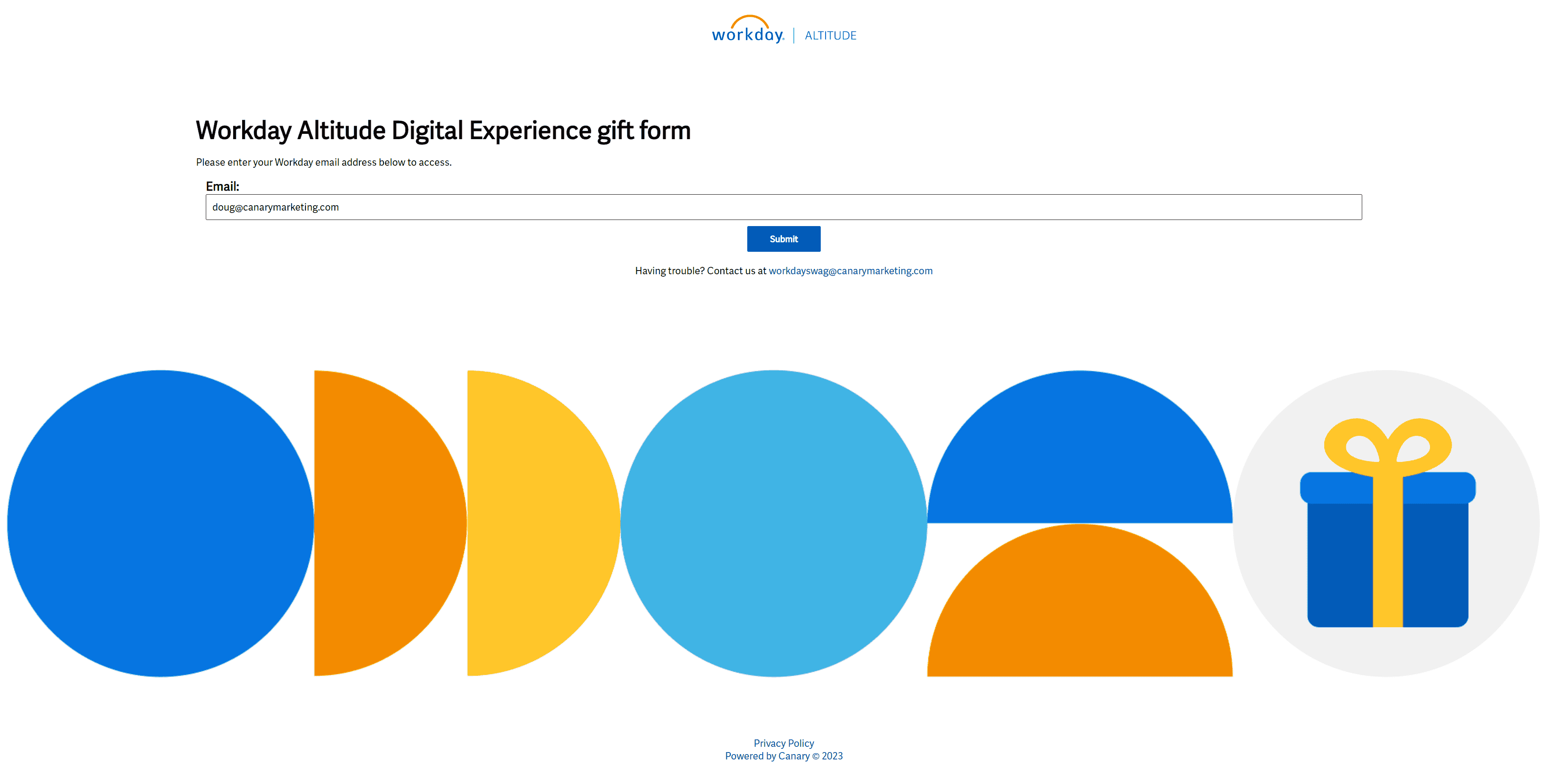
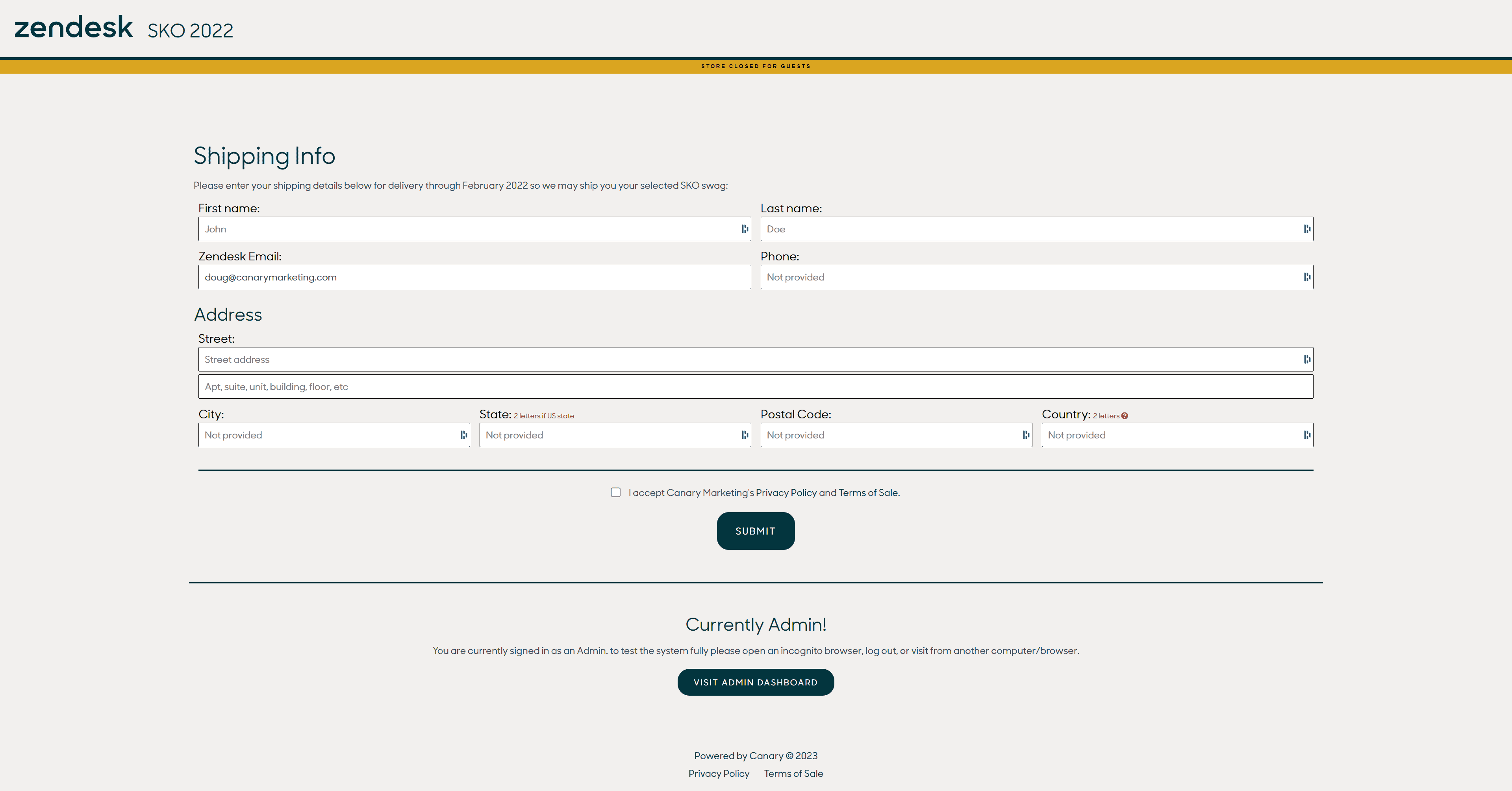
ship-form-template
Building on the lessons from canarymarketing-shop, the ship-form-template was designed for simplicity and scalability. Instead of hosting all shops under one domain, this system introduced a templated approach, with each shop tied to its own GitHub repository and Firebase backend.
This architecture allowed for rapid deployment and easy customization, making it ideal for short-term projects. Admins had access to a CMS to manage guest lists and orders via individual or bulk uploads. The system prioritized flexibility for theming, products, and content to suit client-specific needs.
Key Achievements:
- Supported over 20 production sites with features tailored to unique client requirements.
- Simplified workflows for administrators, enabling efficient management of guest lists and data.
- Penetration-tested and secured with minimal vulnerabilities, ensuring compliance with data protection standards.
Despite its effectiveness, the increasing number of standalone codebases created operational challenges, leading to the need for a centralized solution.

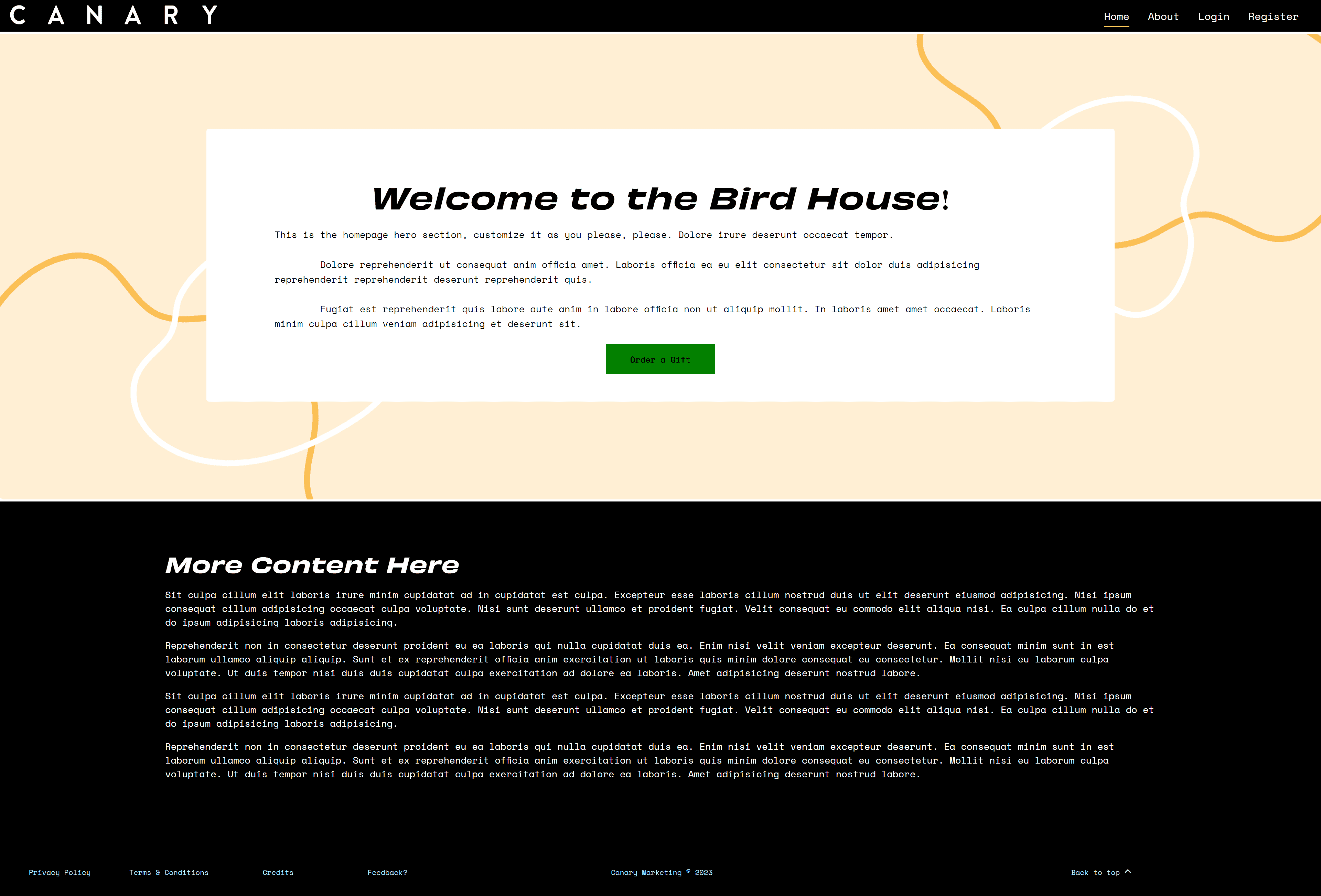
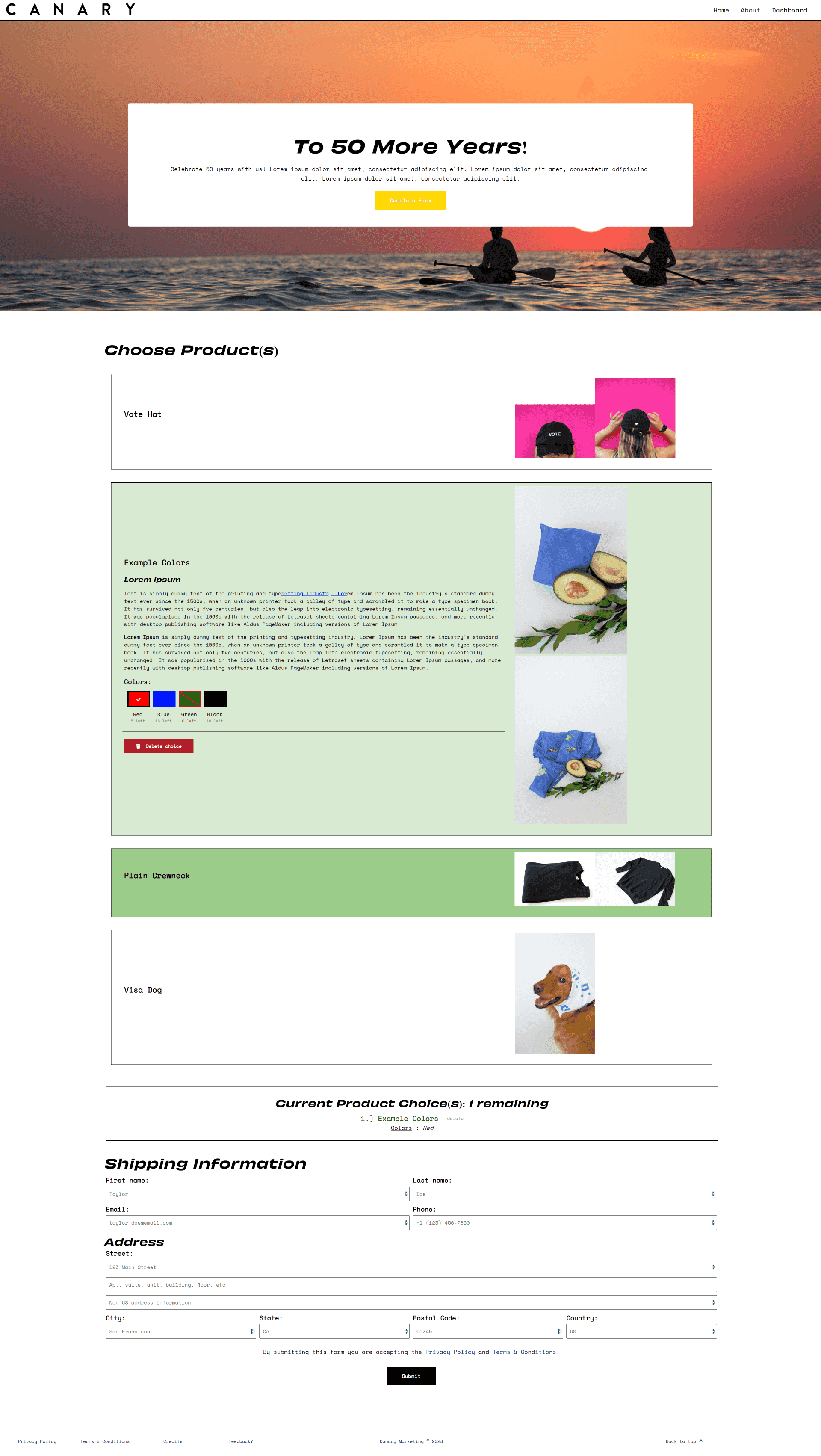
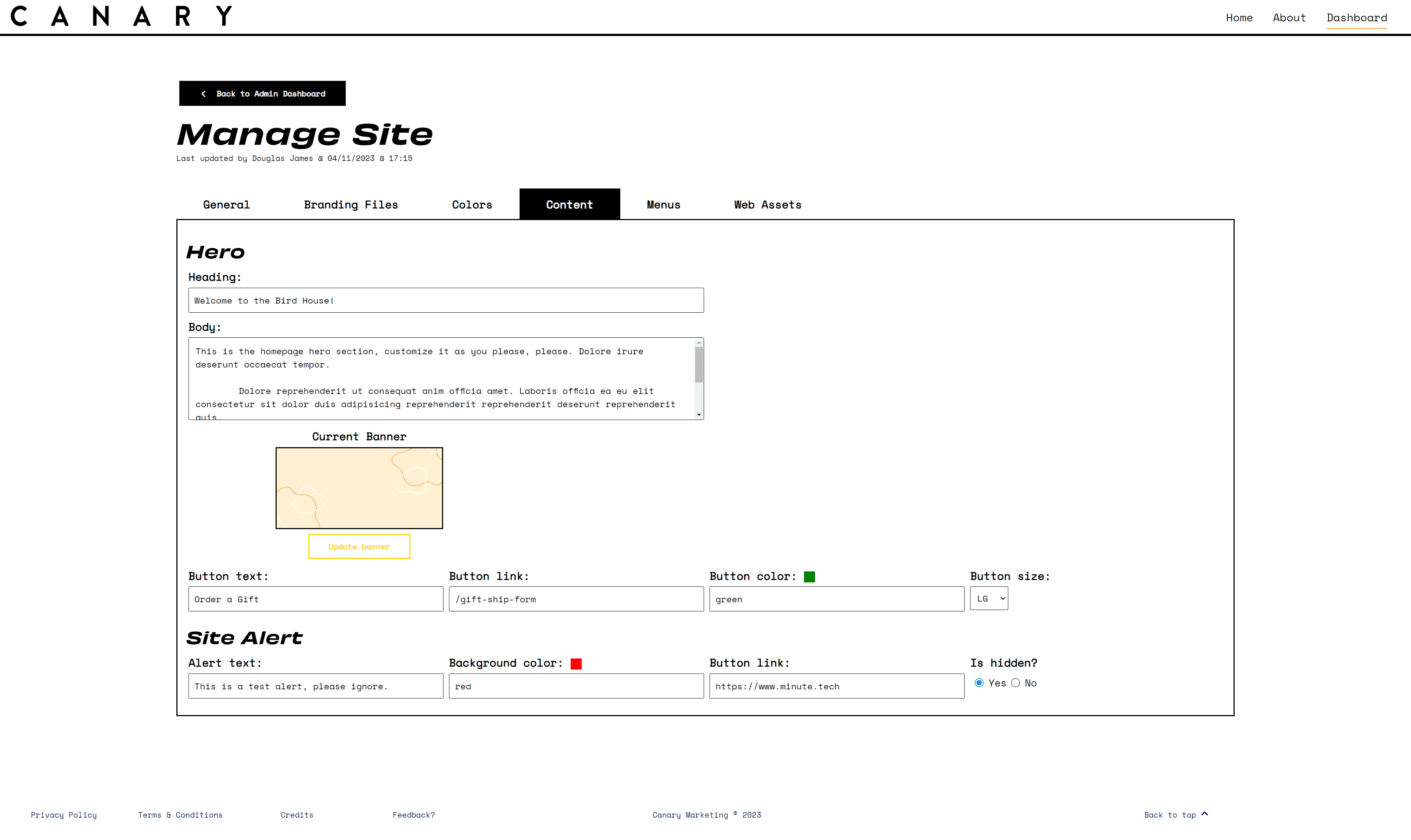
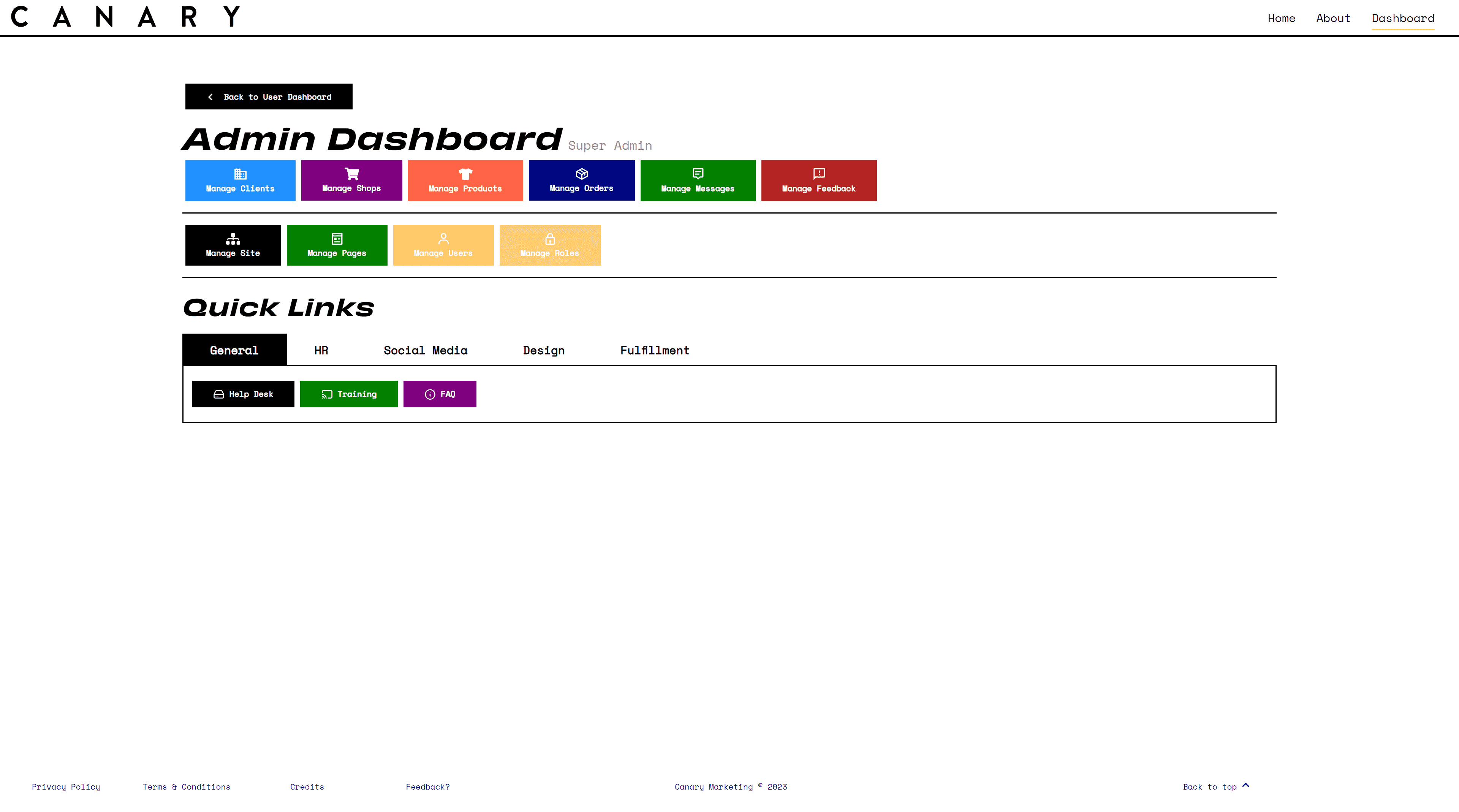
canary-hub
The canary-hub marked the evolution of Canary’s pop-up shop system into a centralized, multitenant platform. This system allowed admins to create and manage multiple shops from a single dashboard, reducing the overhead of maintaining separate codebases for each project.
The hub introduced advanced features, including:
- Role-Based Access Control (RBAC): Ensured compliance with ISO standards by defining user permissions and integrating two-factor authentication.
- Modular CRUD Components: Simplified data management, allowing shops to scale and adapt to varying client needs.
- Centralized Data Sharing: Enabled products, users, and orders to be shared across multiple shops, improving efficiency and reducing redundancy.
Although the platform successfully addressed scalability and operational efficiency, Canary ultimately opted to leverage existing third-party solutions due to concerns on the liability of custom built software handling PII.

Built for Impact
- Scalable web shop systems tailored for bulk gift distribution.
- Simplified workflows for managing orders, guest lists, and user data.
- Security-focused features ensuring compliance with ISO and SOC 2 standards.
- Flexible architecture supporting rapid deployment and client customization.
A Platform for the Future
This partnership demonstrated Minute.tech’s expertise in developing tailored solutions that address complex challenges. From scalable platforms to branded client pages, the tools delivered practical results while setting the stage for future innovation and growth. Canary’s success underscores the value of customized, user-focused technology in driving business transformation.





